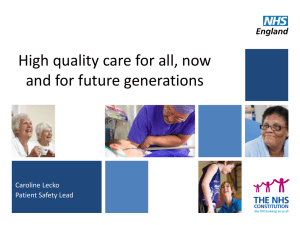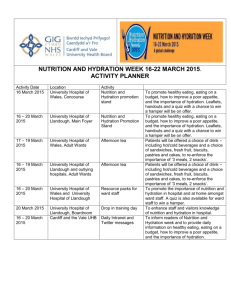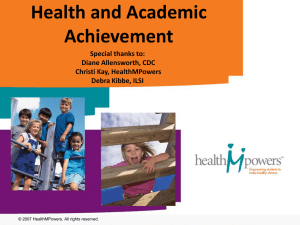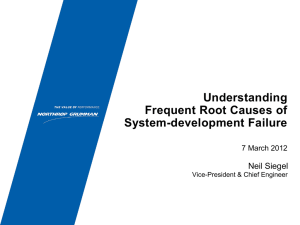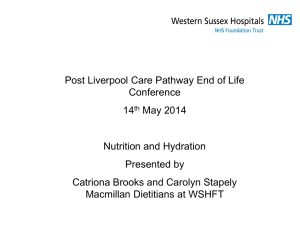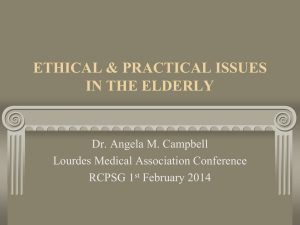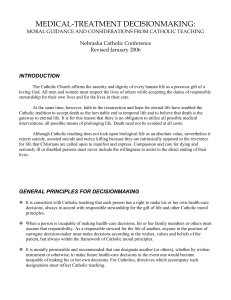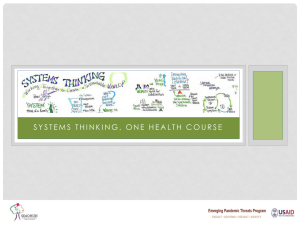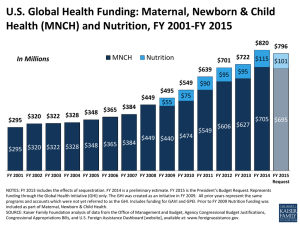Caroline Lecko - The National Association of Care Catering
advertisement
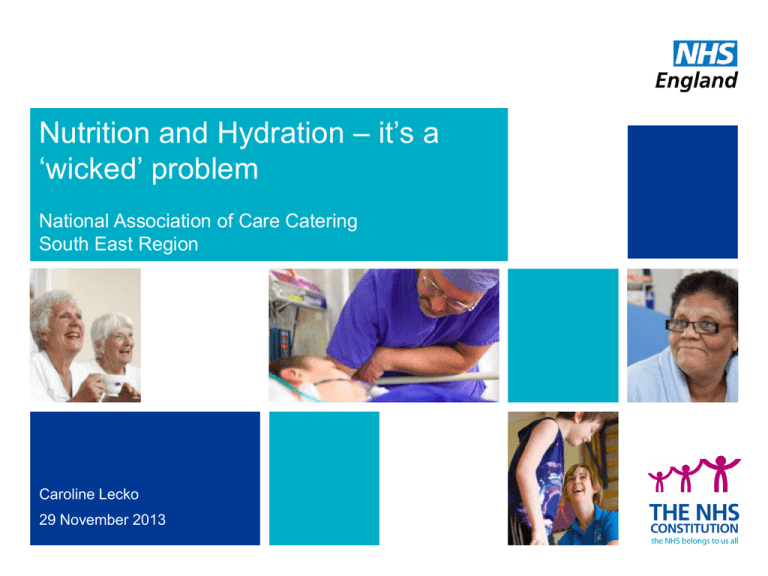
Nutrition and Hydration – it’s a ‘wicked’ problem National Association of Care Catering South East Region Caroline Lecko 29 November 2013 We know what we know…. But we keep telling ourselves (and everyone else) the same things…………. 2 Just a reminder • Three million people in the UK suffering from or at risk of malnutrition • 93% of these people are in the community • Over a million of these people are over 65 • 33% of older people are already malnourished or at risk on admission to hospital • 37% of older people who have recently moved into care homes are at risk • The scale of dehydration in the UK is unknown 3 We know people in our care and their families live with the consequences of poor nutrition and hydration ...... and the resulting harms ……….. 4 Setting the scene – last 10 years or so • Patient Environment Action Team Assessments (annually) Now PLACE • Essence of Care x 2 • Better Hospital Food • Protected Mealtimes New for 2013 • Council of Europe resolution • Age UK Hungry to be Heard • National Institute for Health and Clinical Excellence • RCN Nutrition Now Campaign • NPSA/RCN Hydration Best Practice Toolkit • DH Nutrition Action Plan • NPSA10 Key Characteristics of Good Nutritional Care Toolkit • High Impact Actions for Nurses • CQC Essential Standards for quality and safety • NICE Quality Standards • Nutrition and Hydration Action Alliance 5 • Malnutrition Task Force Better Hospital Food Campaign DH Hospital Food Panel 6 Statement Ensuring adequate nutrition and hydration across the health service, and related care service system, is a significant and longstanding challenge. It remains a serious and high profile patient safety concern. Previous initiatives and efforts, by many different people and organisations, have succeeded in raising awareness for a short time. None have achieved sustainable change. Fact It’s a ‘wicked problem’ 7 What is a ‘wicked problem’? Rittel and Webber's 1973 Dilemma’s in a general theory for planning "The search for scientific bases for confronting problems of social policy is bound to fail because of the nature of these problems...Policy problems cannot be definitively described. Moreover, in a pluralistic society there is nothing like the indisputable public good; there is no objective definition of equity; policies that respond to social problems cannot be meaningfully correct or false; and it makes no sense to talk about 'optimal solutions' to these problems...Even worse, there are no solutions in the sense of definitive answers." 8 Rittel, H.W.J, "The Reasoning of Designers," Working PaperA-88-4, Institut fur Grundlagen der Planung, Stuttgart (1988). “A recurring theme in research and industry literature is the connection between wicked problems and design” Conklin, Jeff; Wicked Problems & Social Complexity, Chapter 1 of Dialogue Mapping: Building Shared Understanding of Wicked Problems, Wiley, November 2005. “Design problems are typically wicked because they are often ill defined (no prescribed way forward), involve stakeholders with different perspectives, and have no "right" or "optimal" solution” Conklin, Jeff, Min Basadur, and GK VanPatter; Rethinking Wicked Problems: Unpacking Paradigms, Bridging Universes (Part 1 of 2), NextDesign Leadership Institute Journal, 2007. “wicked problems cannot be solved by the application of standard (or known) methods; they demand creative solutions” 9 Our ‘wicked problem’ "What are the key issues, barriers and challenges we face in reducing malnutrition and dehydration across our health economy?” A total of 183 answers to the trigger question were received 10 11 • The participants were asked to work in predefined table groups, to discuss and decide which 3 (per table) of the 183 they thought were most important, i.e. the biggest issues, barriers or challenges. • They were also asked to place them along with closely associated answers into related clusters, and to re-write the key points for clarity if required. 12 13 14 Influence map 15 Nutrition and Hydration within NHS England Nursing Directorate Domain 4 Domain 5 Patient Experience Creating conditions for safety Marie Batey Head of Acute and Older People National Quality Improvement and Care Team Martine Tune Head of Patient Experience (Acute Care) 16 Caroline Lecko Patient Safety Lead (Nutrition/Hydration & Pressure Ulcers) The dominating obesity agenda 17 Nutrition and Hydration Week 2014 • Nutrition and Hydration Week 2014 is a collaboration between the Hospital Caterers Association (HCA), National Association of Care Catering (NACC) and Patient Safety First. • During Nutrition and Hydration Week 2014 we are asking everyone – and we really mean everyone – to pledge their support to raising awareness of the importance of nutrition and hydration as an essential element of care. • http://nutritionandhydrationweek.co.uk/ •18 @NHWeek #NHW2014 19 Many thanks caroline.lecko@nhs.net @celecko 20
